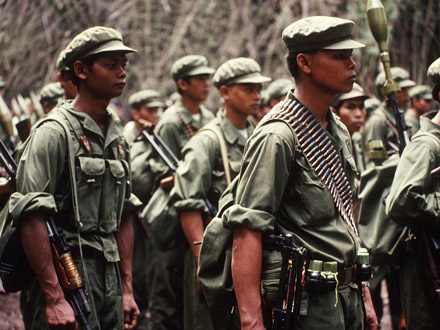In Nayan Chanda’s Brother Enemy: The War After the War, he speaks about the tenuous relationship between Vietnam and Cambodia after the war. Historically, Vietnam had been in a long struggle under the Chinese and then French rule, and the power struggle resumed after the Vietnam War ended. Though I had a brief understanding of the Vietnam War and the U.S. involvement, I had little knowledge of the war between Vietnam and Cambodia, and the power struggle between them and other foreign powers. Chanda says that although the U.S. deeply felt like it lost the war, it was China who should have feared Vietnam. After the U.S. stopped intervening, China feared that Vietnam would reunite and become stronger together. This was an interesting point, as Vietnam had been fighting against China for a thousand years. Once again, it demonstrates how differently history would have turned out if certain foreign powers had not been involved. I can understand the resentment and hate Vietnamese people must feel against those who colonized them because their fight for independence seemed never-ending.
Question: The only time I’ve heard accounts of the Khmer Rouge were through immigrants themselves. There is one film I know of, which is also a book, called First They Killed My Father about the Khmer Rouge. I find it incredibly important for the media to play the role of telling history, in a way that the history books do not. How can media portray history and personal accounts in an accurate way, that isn’t Hollywood-washed?

No comments:
Post a Comment